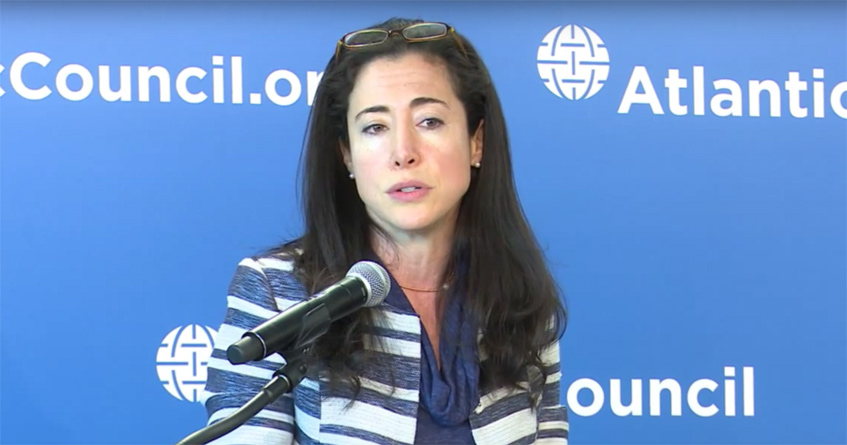U.S. Official: China Turned to Debris-free ASAT Tests Following 2007 Outcry

WASHINGTON – The outcry that followed the Chinese military's 2007 destruction of a weather satellite and the immediate creation of thousands of pieces of space junk has helped dissuade China from conducting similar debris-generating tests, a U.S. State Department official said.
On Jan. 11, 2007, China deliberately destroyed one of its defunct weather satellites known as Fengyun-1C using a ground-based, medium-range ballistic missile. The action, which was widely condemned throughout the international space community, left a cloud of potentially hazardous debris in a heavily used belt of Earth orbit.
Since that event, U.S. Defense Department leaders say China continues to develop anti-satellite weapons and officials point to similar tests in 2010, 2013 and 2014. [Russian Satellite Crash with Chinese ASAT Debris Explained (Infographic)]
Mallory Stewart, the State Department's deputy assistant secretary for emerging security challenges and defense policy, called the 2007 event a "remarkable incident of irresponsible behavior" during a Jan. 11 speech at the Atlantic Council. Stewart delivered the keynote speech as part of a discussion on "Space Weapons and the Risk of Nuclear Exchange," held to mark the ninth anniversary of the notorious test.
"There have been subsequent tests by China, but none of them have been debris generating," Stewart said. "At the State Department, we like to attribute that to the huge international outcry."
Stewart said the test created one-sixth of all radar trackable debris. Other government estimates say the event led to 3,400 pieces of debris, more than half of which is expected to still be in orbit in 2027.
Defense Department officials have said the 2007 test led the Pentagon to stop viewing space as a sanctuary and also was a factor in the White House shifting $5.5 billion into space protection as part of its 2016 budget request. Gen. John Hyten, the head of Air Force Space Command, last year called the 2007 test "a significant wakeup call to our entire military."
Get the Space.com Newsletter
Breaking space news, the latest updates on rocket launches, skywatching events and more!
In its 2015 report, the U.S. China Economic and Security Review Commission, a congressionally mandated monitoring panel, reached a similar conclusion.
"The non-debris-generating nature of the tests suggests China may have gained a better appreciation of the diplomatic costs of debris-generating antisatellite tests as well as the long-term consequences of such tests for China’s own space assets," the report said.
Other space policy experts, including Dean Cheng, senior research fellow at the Heritage Foundation, have said China may have avoided debris-generating tests in recent years for reasons unrelated to the backlash. Cheng has said in interviews with the commission there is little evidence linking the diplomatic response and the debris-free tests.
Join our Space Forums to keep talking space on the latest missions, night sky and more! And if you have a news tip, correction or comment, let us know at: community@space.com.
Mike Gruss is a veteran defense reporter and Editor-in-Chief of Sightline Media Group, which includes Army Times, Air Force Times, Dense News, Military Times and Navy Times. From 2013 to 2016, Mike served as a Senior Staff Writer for SpaceNews covering national security space programs and military space policy in the U.S. Congress. Mike earned a bachelor's degree in English and American Studies from Miami University and has previously wrote for the Journal Gazette in Fort Wayne, Indiana and the Virginian-Pilot in Virginia before joining SpaceNews. Prior to joining Sightline in 2017, he was a senior editor of FedTech magazine covering technology in federal government. You can see Mike's latest project on Twitter.

